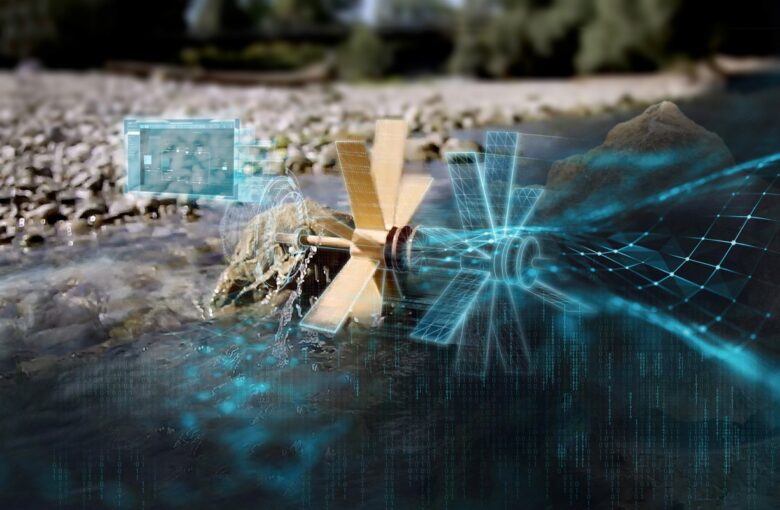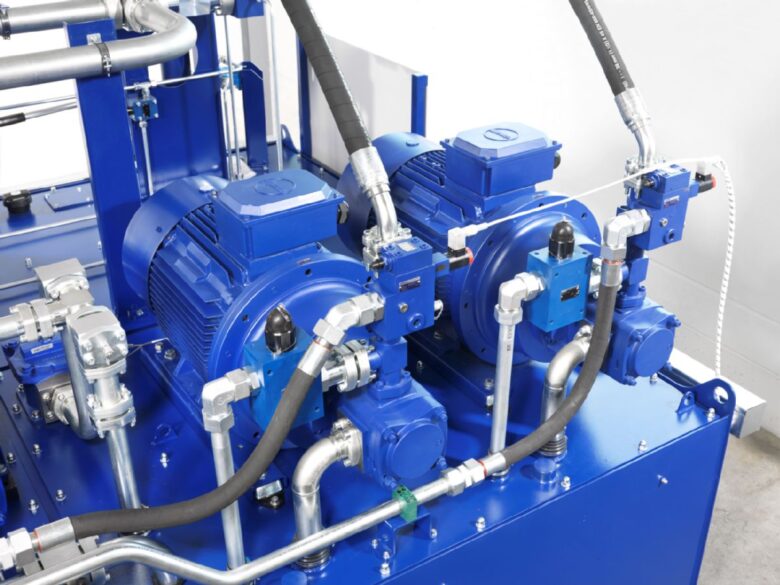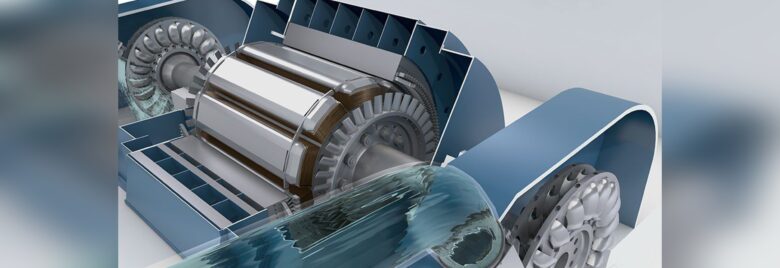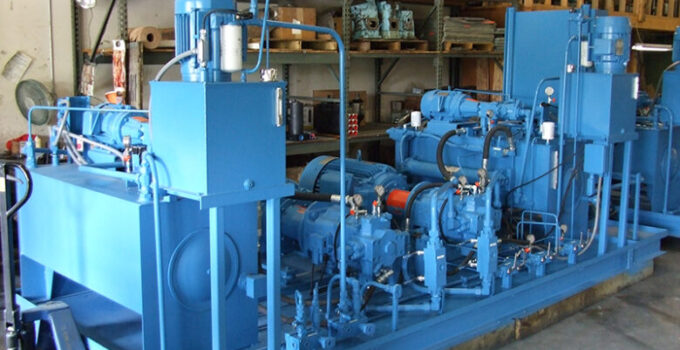As global warming continues to be a major threat to the planet, energy efficiency is extremely important. Alternative energy resources are a huge thing because almost every industry in the world is trying to be more efficient, and save the planet and environment at the same time.
Governments around the world are desperately trying to develop more energy-efficient power, switching away from harmful fossil fuels. One solution being considered is Hydraulic power. So, at the very beginning, we probably should explain what is it, how it works, and how it can be applied to today’s industrial development?
This technology is also a standalone branch of science that combines engineering, mechanics, chemistry, and fluid technology, as a source of energy, for some machines to work. It includes liquid materials and gases, and it’s based on the basic fluid mechanics, and also, we can say it works similar to pneumatics.
-

Source: siemens-energy.com
The machines need a little fluid to generate enough energy to power the system. The power creates a force that produces energy and is operated by water or any other compatible fluid suitable for the particular system. Usually, these systems include cooling because it may cause leaking or damage if it becomes too hot.
Choosing the right hydraulic component provider is crucial, just as selecting the right blood type is essential for our body’s well-being. Just like blood vessels are vital in our bloodstream system, hydraulic components are crucial in ensuring machines operate efficiently.
The right provider ensures compatibility, preventing overheating issues that could otherwise result in system failures, highlighting the importance of making informed choices in this evolving industry. For instance, high-quality hydraulic hoses, such as those from hoseshop.com, ensure the system’s optimum performance and prevent them from leaking.
All in all, the hydraulics industry has come a long way in recent years. Many countries have already recognized fluid power as a primary energy source, and their industries are embracing the technology to work better and protect the environment around us. As it becomes more proactive, what does the future hold for this up-and-coming industry?
More Compact Solutions
-

Source: voith.com
One of the main trends we’re expecting to see in the future of Hydraulics is that they will become much more compact. Manufacturers are constantly looking to make their designs more compact and energy-efficient.
The trouble with current solutions is that they can be too large to incorporate. They also currently produce far less power than they need to if they are to become a more mainstream option. So, the engineers have a whole new challenge – to find a way to make all the machines and manufacturing processes more compact. That leads to a more creative approach to the work, and also may result in great innovations.
Reducing Environmental Impact
While hydraulics does have the potential to be a lot more energy efficient than other power types, many systems are not. There are different types of hydraulics and some are much more harmful to the environment than others, so when choosing this type of power, you should be very careful about how it works.
In the future, we can expect to see development in more energy-efficient options. Manufacturers are looking to minimize their impact on the environment, including making systems safer so they don’t leak or malfunction.
Improved Technology
-

Source: directindustry.com
Like all sectors, the Hydraulics industry is set to introduce new technology in the coming years. Improved technology will help to address the current challenges in the sector, offering inexpensive solutions to the current problems the industry may face. We can also expect that in the future, fluid power will be used in many advanced ways, and it will be affordable and easier to maintain.
It is also expected that manufacturers will combine hydraulics with existing technologies to produce more effective solutions. For example, they will work alongside industrial controls like those offered by Allied Electronics, for a fully automated solution.
Better Reliability
Finally, as technology improves hydraulics will also experience enhanced reliability. At the moment, there are some reliability issues that need to be addressed. Innovation has been somewhat lacking in recent years due to a skills gap. As more people enter the industry, we’ll start to see much faster developments.
It’s Still Developing
-

Source: directindustry.com
We can’t say that hydraulic technology can stand alone without any additional help from the other technologies. People in the industries, especially the engineers, should consider this part of the engineering as something that can be better than it already is.
Probably, it will need support from the other known methods, until we can find a way for the fluid power machines to work properly, as we are imagining the ideal case.
What Are the Parts of One Fluid Power System?
Every hydra-powered system contains four main parts, including the reservoir where the liquid is kept before the machine starts working. Then, the pump should take some part of that liquid, so it can power up the whole system, using the pumping pressure to do that.
The valves are used to direct the liquid movement, and at the final iteration, the actuators convert the hydraulic energy to mechanical, so they can power up the machine or the whole system to work properly.
Usually, these systems use the water as the main fluid, but they also may use petroleum or synthetic liquid substances, because they can handle higher temperatures, or protect the parts from corrosion.
All the things we mentioned above are just some of the things we can expect from the future of hydraulics. The sector is fast becoming more responsible and proactive. If used correctly, it could be an ideal solution to better the environment. At the moment, one of the biggest challenges the sector faces are power. Current solutions aren’t overly powerful compared to their competitors.
When all the problems are solved, we can embrace all the alternative sources of energy, and use their potential to power up the whole industry, without harming the planet anymore. We are all responsible for what we are doing to the environment, and that’s why all humanity should turn to more efficient sources of energy, so the world will be a better place to live for us and our children.




